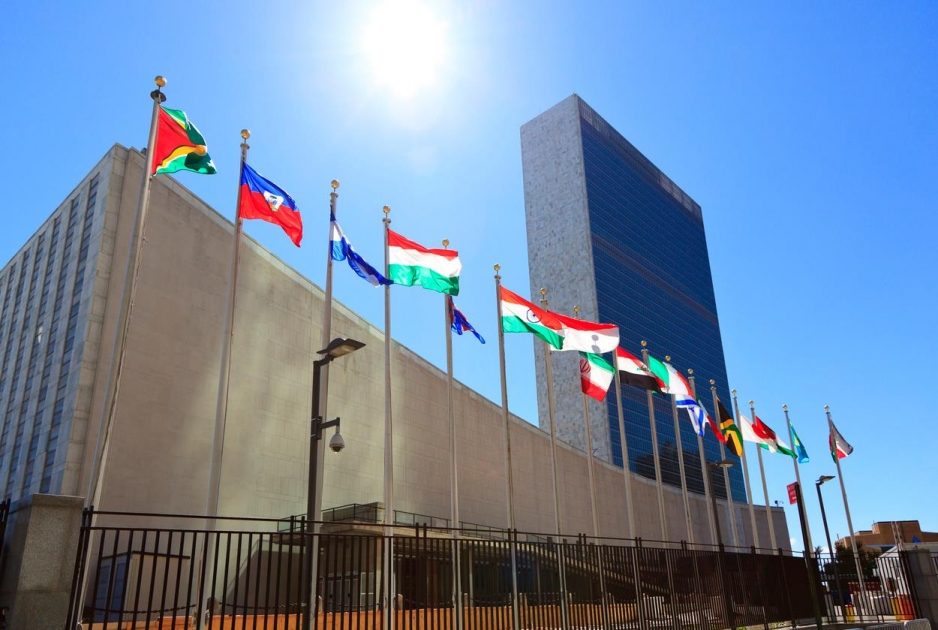Statement of Minister of Foreign Affairs of the Russian Federation Sergey Lavrov during an open VTC of the UN Security Council “Peacebuilding and Sustaining Peace: Contemporary Drivers of Conflict and Insecurity”, presented by Deputy Foreign Minister Sergey Vershinin
Mr President,
Colleagues,
First of all, I would like to congratulate Mr Ralph Everard Gonsalves on the start of the Saint Vincent and the Grenadines’ presidency at the UN Security Council. This is a signal event not only for your country but also for all the other small island states, whose independent voices must sound at the Security Council.
The theme you proposed for our debate reflects the concerns of many countries faced with the growth of complex security threats amid the current difficult situation. This focus is especially important now that all of us have come up against a fundamentally new challenge that has been ruthless to all countries without exception: the COVID-19 pandemic. The pandemic has reiterated the lesson history has been trying to teach us: there is no alternative to solidarity, cooperation, responsible conduct and mutual assistance.
Regrettably, not all countries share this approach; some of them continue to give priority to their own egoistical mercenary interests. The practice of unilateral sanctions is being applied ever more broadly, which is hampering other states’ efforts against the pandemic and its socioeconomic consequences.
In this context, we would like to once again express solidarity with the appeal issued by UN Secretary-General Antonio Guterres for a global ceasefire, which includes the lifting or at least easing of illegal restrictive measures. Of great significance in these circumstances is the initiative on establishing “green corridors” that would be free of trade wars and sanctions proposed by President of Russia Vladimir Putin. This would help provide basic necessities and medication to the vulnerable groups of population.
Esteemed colleagues,
The countries that are on an uphill road from conflict to sustainable peace particularly require the assistance of the international community. In granting such assistance, it is necessary to be guided by the principle of the main responsibility of these countries themselves for drafting and implementing the strategies and priorities on peacebuilding with account for the needs and requirements of their society. Every case requires a particular, unique approach without the imposition of automatic solutions and ready policy prescriptions.
The same applies to the efforts to prevent crises. It is alarming that increasingly frequent attempts are being made to establish universal “indicators” of conflicts that open opportunities for abuse and interference in internal affairs with a view to bringing pressure to bear on “objectionable” governments.
Thus, I am referring to a striving to present human rights violations as all but the main prerequisite for crises. We believe that it is the successful settlement of armed conflicts and the reconciliation of conflicting sides that create a foundation for improving the human rights record and promoting sustainable development and the resolution of environmental and other issues.
We do not deny the link between these issues in the maintenance of international peace and security. However, we proceed from the premise that economic troubles do not automatically trigger a lack of security and vice versa. Moreover, we consider very important the “division of labour” between the main UN agencies, each of which must perform its functions in strict accordance with its mandate.
This applies, for instance, to the discussion of the climate agenda in the Security Council. We think that climate change is not a universal factor of conflicts and global instability. In this context, its impact on the socioeconomic and political situation in a number of countries and regions must be viewed on a case-by-case basis.
The leading role in this area belongs to the relevant venues of the UN that have proper expertise and instruments for drafting long-term decisions on the effective countering of climate change. We fully share the concerns of our friends from the small island states and intend to actively help them adapt to climate change both through national development institutions and universally recognised international agencies, including in the UN.
At the same time, we support the cooperation of various UN agencies where it is appropriate and approved by all member states. We would like to mention in this context the UN Peacebuilding Commission (PBC), which is an advisory platform for developing strategies for the post-conflict recovery of recipient countries on the basis of their priorities. We favour the development and consolidation of dialogue with the Security Council and ECOSOC.
Esteemed colleagues,
I would like to thank once again Saint Vincent and the Grenadines’ presidency for attracting attention to the current challenges and security threats. I am convinced that an honest and open exchange of views will facilitate an effective search for ways of responding to these very urgent problems.
